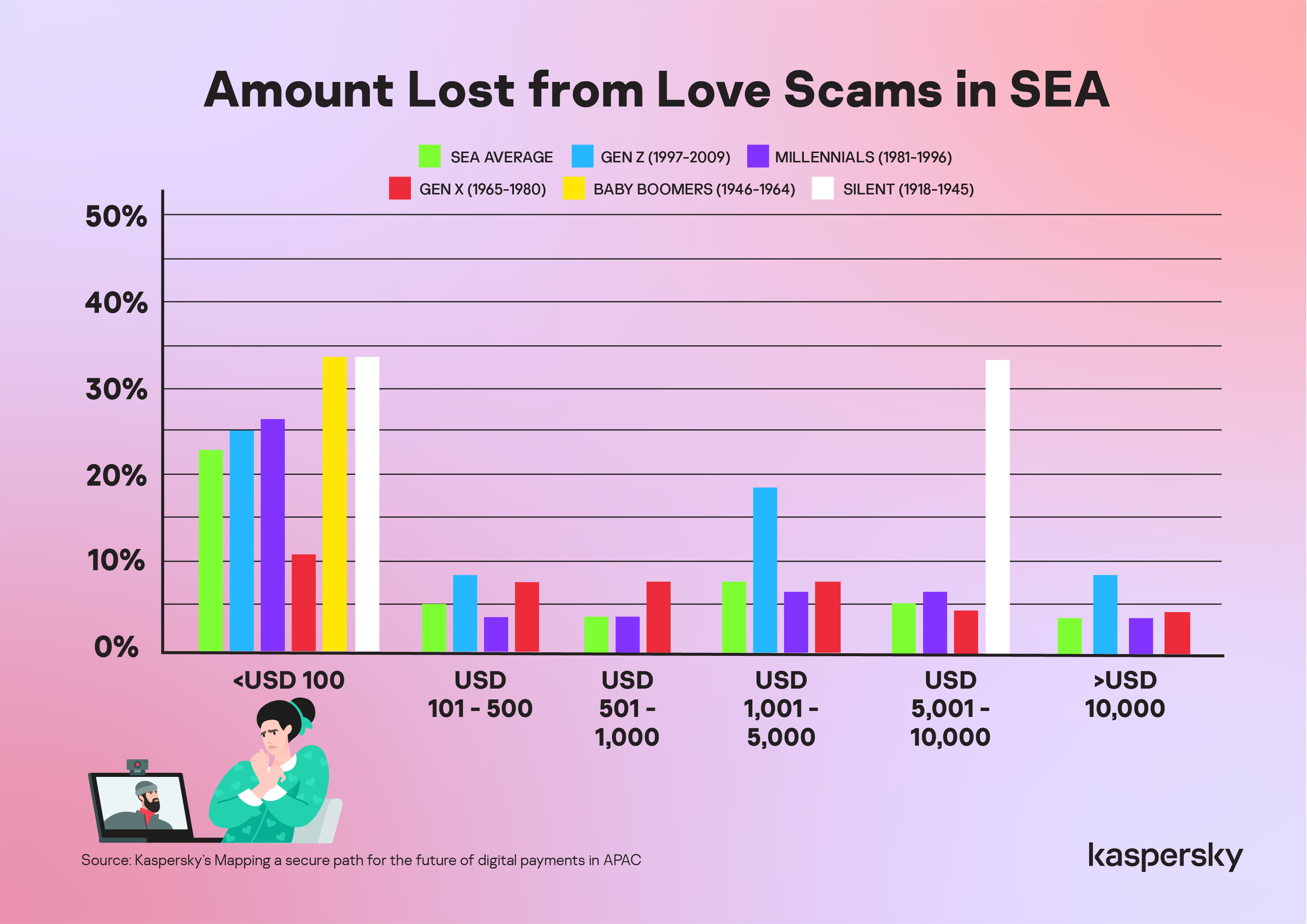At least 45% of online users in Southeast Asia fall victim to love scams, according to data from a cybersecurity firm.
In Kaspersky‘s latest report, one in two individuals or 45% of respondents of a survey conducted in July last year has been victims of romance scams in this region.
Its findings also showed a correlation between the cost of the scam and the victim’s age.
According to a graph of recorded “love scams” in the region, most recorded incidents cost less than $100.

However, the age group where most victims belong to are from the Baby Boomers (1946-1964) and the Silent (1918-1945) generations or 33% of the respondents.
Most victims, in particular, belong to the silent generation. They also lost the most money amounting to around $5,000 and $10,000 from online love scams.
There are young people who also lost the same amount of money.
According to the cybersecurity firm’s data, a small portion or eight percent of victims from the Gen Z (1997-2009) also lost more than $5,000 from romance-related online schemes.
Chris Connell, managing director of Kaspersky Asia Pacific, attributed time and retirement funds as among the reasons why most victims were the elderly.
“When we were younger, we tend to be more curious and a bit more reckless. When we become older, we have a lot of time in our hands and, usually, retirement funds in our bank accounts. Cybercriminals know these realities as well as our human tendencies to be lonely and crave for a company when forced to be alone inside our houses,” Connell said.
Data from the research titled “Mapping a digitally secure path for the future of payments in APAC” was gathered by research agency YouGov from ten countries including Australia, China, India, Indonesia, Malaysia, Philippines, Singapore, South Korea, Thailand, and Vietnam.
The survey was conducted in July 2021 with a total of 1,618 respondents across countries.
Meanwhile, last February 2, streaming entertainment service Netflix released a documentary titled “Tinder Swindler” which exposes a scammer posing as a wealthy, jet-setting diamond mogul, he wooed women online then conned them out of millions of dollars.
The documentary, which raises awareness on romance scams, follows how the scheme was discovered and how some victims plan for payback.
It has since made it to the weekly chart of the streaming giant and is currently the top 9 show on Netflix Philippines as of writing.
How to avoid online dating scams
To avoid falling prey to similar love scams, Kaspersky listed down the following tips on how to keep users’ money and hearts safe:
- When using social media sites, don’t accept friend requests from people you don’t know.
- Avoid revealing too much personal information in a dating profile or to someone you’ve chatted with only online.
- Take things slowly. Ask your potential partner questions and watch out for inconsistencies that might reveal an impostor.
- Use reputable dating sites and keep communicating through their messaging service. Fraudsters will want you to switch to text, social media, or phone quickly, so there is no evidence on the dating site of them asking you for money.
- Never give money to someone unless you also have a relationship with them offline.
- If you do make a date with someone outside of cyberspace, be sure to let people in your life know where you’ll be, to be on the safe side.










